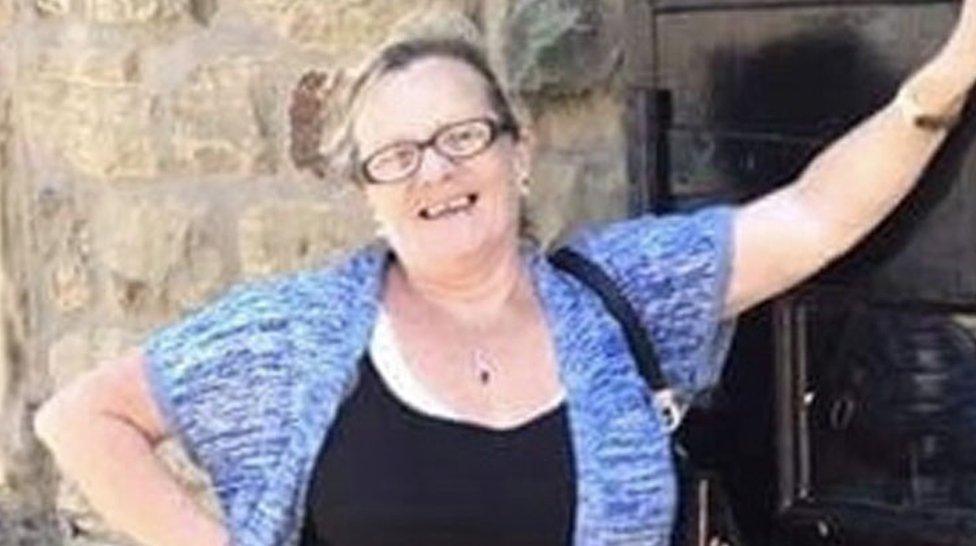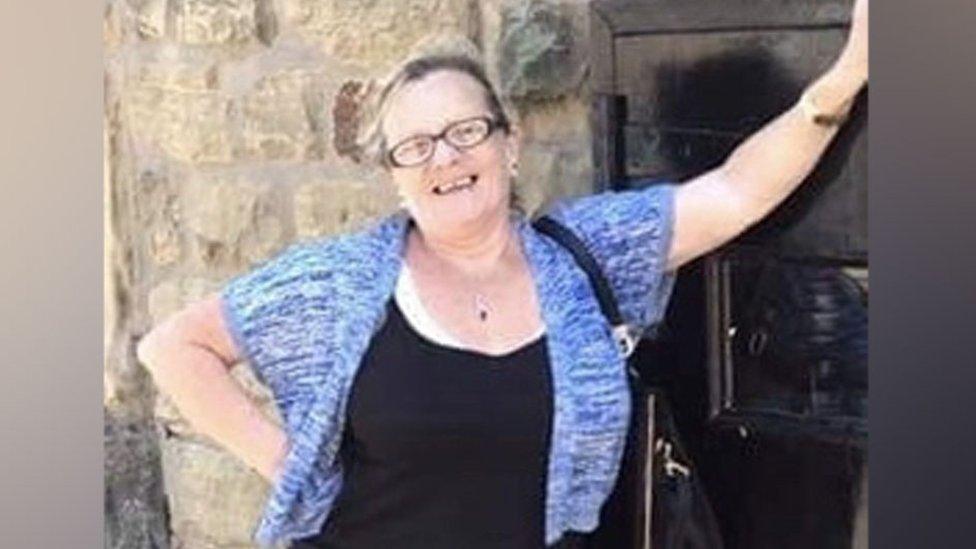Odessa Carey: Review into Ashington death finds multiple failings
- Published

Odessa Carey was killed by her daughter, also called Odessa Carey, in April 2019
A catalogue of failings meant multiple agencies failed to recognise the danger a woman who killed and decapitated her mother posed, a review has found.
Odessa Carey beat her mother, also called Odessa Carey, to death in Ashington, Northumberland, in 2019.
Carey was sentenced to a hospital order after being found responsible for her 73-year-old mother's death.
Agencies involved including health services said lessons had been learned from NHS England's review, external.
At the time of the killing, Carey, then aged 35, was a patient of Northumberland, Tyne and Wear NHS Foundation Trust, now Cumbria, Northumberland, Tyne and Wear Community Mental Health Services (CNTW).
In its domestic homicide review, NHS England said Carey had a long history of mental health issues with a number of incidents involving her mother, but the risk she posed was not properly considered.
The review said Carey repeatedly expressed delusions to various health workers, including that her mother had been replaced by an imposter, but there was a "lack of clinical curiosity".
It said there were "many signs" Mrs Carey was at risk from her daughter, including:
Threats and Mrs Carey expressing fears about her daughter
Carey's escalating mental disorder and her history of harming pets
Carey's assault on her boyfriend and use of weapons
"Mrs Carey was not heard when she said she was frightened and needed help," the review said, adding: "Mrs Carey was a consistent target for harm and it follows that she was at greatest risk from [her daughter]."

Odessa Carey was sentenced to a hospital order for killing her mother
Failings identified included:
There was "limited understanding of the relationship" between Carey and her mother with "inadequate exploration of the belief repeatedly expressed" by Carey that her mother had been replaced by an impostor
There were "many instances" which should have triggered a healthcare review of Carey's risk assessment and management plans
Health workers developed an "unconscious biased view of [Carey]" and blamed her issues on "personality traits and substance misuse" rather than a mental health disorder
A diagnosis of schizophrenia or Capgras syndrome, external "should have been evident given [Carey's] reported delusions" but there was no evidence her delusional beliefs were formally recorded
There should have been a "thorough review" of Carey's substance misuse, including cannabis which "fuelled her delusions"
Two missed opportunities by Northumbria Police to classify Mrs Carey as a victim of domestic violence with risk assessments "inaccurate" and a failure to gain insight from other agencies into her "vulnerability" and "crucially [her daughter's] dangerousness"
GPs did not consider domestic abuse, which could have seen Mrs Carey supported by specialist services, "at any opportunity"
A lack of communication between police, social and health workers with information sharing "very poor"
There were "missed opportunities" by Northumberland County Council social workers to assess Carey
Mrs Carey's family said they had been "failed" by mental health services with her daughter having "suffered mental health issues for many years".
They said: "We believe there should be better communications and reports and notes between various NHS services and better structures for the understanding of the patient and their families."
Mrs Carey's family said she was a "great, caring, loving woman who would go out her way to help anyone" but she was "brutally and violently killed".
Rajesh Nadkarni, executive medical director at CNTW, said: "The impact of this tragedy has been felt throughout our whole organisation.
"Nothing can ever ease the pain for those who knew her, but we are determined that lessons are learned, and services are improved."
The North East and North Cumbria ICB, which has taken over from the Northumberland Clinical Commissioning Group which ran various services referenced in the report, said its sympathies were with Mrs Carey's family, adding: "Clearly, there are lessons to learn and we will work to ensure the recommendations made are actioned accordingly."
Ch Supt Deborah Alderson, head of safeguarding at Northumbria Police, said: "Our thoughts very much continue to be with the victim's family following this tragic case.
"We are committed to taking forward learning identified within the review and already have additional training in place to strengthen officers' understanding around identifying vulnerability."
Gordon Stewart from Northumberland County Council and chairman of the Safer Northumberland Partnership said it had been an "extremely distressing case" and the review's recommendations for the council had "been accepted" and were "now being progressed".

Follow BBC North East & Cumbria on Twitter, external, Facebook, external and Instagram, external. Send your story ideas to northeastandcumbria@bbc.co.uk, external.
- Published12 March 2020

- Published11 March 2020

- Published5 March 2020
